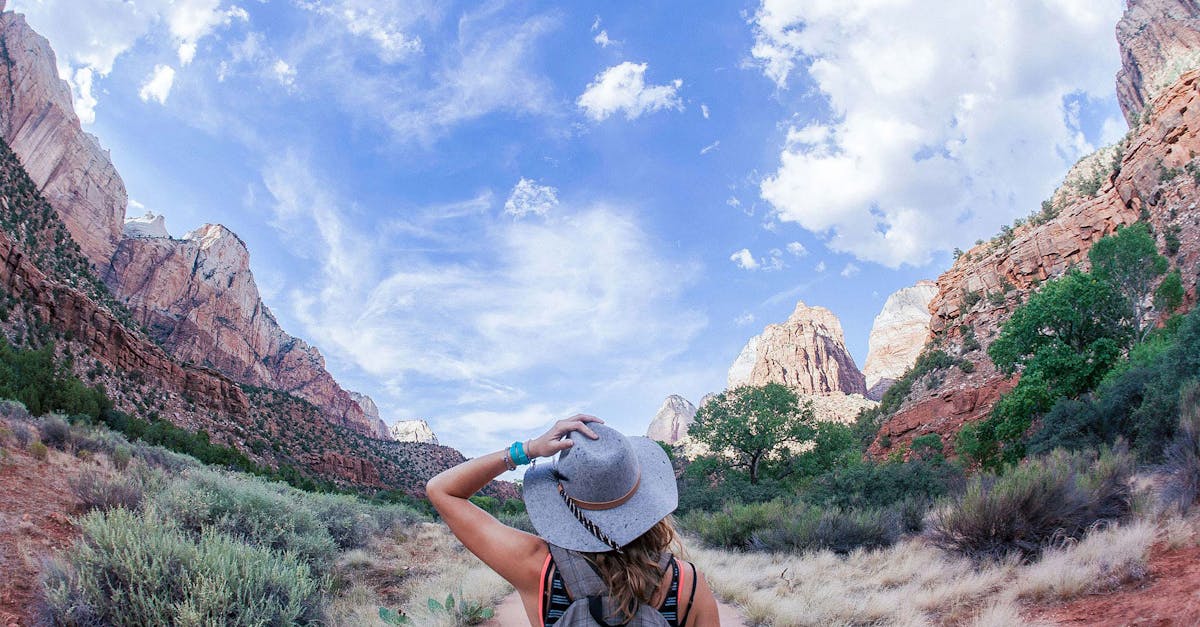Have you ever amazed why national parks have rangers? Welcome – you have now found the perfect article.
National parks are large, wild, and full of sights, but they can also be unpredictable and dangerous.
That’s where rangers step in – to ensure your safety and guide you through the wilderness.
We understand the unease that can come with exploring the great outdoors. From exploring treacherous terrains to encountering wildlife, national parks present only tough difficulties. Don’t worry, for rangers are there to alleviate your concerns and make your visit a memorable one.
As experienced experts in wildlife conservation, emergency response, and environmental education, we take honor in sharing our knowledge with you. Our goal is to make your national park experience enriching, safe, and unforgettable. So sit back, relax, and let us be your guides through the untamed beauty of our national parks.
Key Takeaways
- National park rangers are critical for ensuring visitor safety by being trained in emergency response and wilderness first aid.
- Rangers guide visitors through the wilderness, providing skill in exploring trails, wildlife behavior, and potential hazards.
- Their role extends to wildlife conservation, including protecting habitats and preserving bioexplorersity within national parks.
- Rangers are ready with to handle emergency situations swiftly, making visitors feel secure while exploring the great outdoors.
- Engaging with rangers improves the national park experience through guided tours, educational programs, and a more connection to nature.

The Role of Rangers in National Parks
Rangers play a critical role in national parks, serving as stewards of these natural treasures. Here are some key responsibilities that highlight the importance of rangers in national parks:
- Ensuring Visitor Safety: Rangers are trained in emergency response and wilderness first aid to handle unexpected situations and keep visitors safe.
- Guiding through the Wilderness: They assist visitors in exploring trails and understanding the ecosystem, enriching the visitor experience.
- Wildlife Conservation: Rangers possess skill in protecting wildlife habitats and ensuring the well-being of animals within the park.
- Environmental Education: They share knowledge about nature conservation and the significance of preserving bioexplorersity in national parks.
- Emergency Response: Rangers are ready with to handle natural disasters and other emergencies, providing critical support in challenging situations.
National parks rely on the dedication and skill of rangers to ensure the preservation and enjoyment of these natural sights.
Their presence improves visitor experience and contributes to the conservation of wildlife and ecosystems.
For more information on the importance of rangers in national parks, visit the National Park Service Website for useful ideas.
Ensuring Visitor Safety
Rangers play a critical role in ensuring the safety of visitors in national parks.
They are trained in emergency response and wilderness first aid to handle any unforeseen situations that may arise.
In the wilderness, where help might be far away, rangers are the first line of defense.
Whether it’s providing medical assistance, rescuing lost hikers, or managing wildlife encounters, they are there to keep visitors safe.
Here are some key ways rangers ensure visitor safety:
- Conducting regular patrols to monitor park activities
- Providing guidance on safe hiking trails and potential hazards
- Responding to emergencies such as injuries or wildlife conflicts promptly
- Educating visitors on park rules and regulations to prevent accidents
At times, the wilderness can be unpredictable, but with rangers on duty, visitors can investigate with confidence.
Their presence not only improves safety but also promotes responsible outdoor practices.
We encourage all visitors to follow the guidance of rangers to make the most out of their national park experience.
Have a safe and enjoyable visit to our national parks with the assistance of dedicated rangers!

Guiding Visitors Through the Wilderness
When it comes to exploring the large expanse of national parks, rangers play a critical role in guiding visitors through the wilderness.
Their extensive knowledge of the terrain, wildlife behavior, and potential hazards allows us to find the way in the trails with confidence.
Whether it’s recommending the best scenic routes, highlighting points of interest, or providing tips on backcountry camping, rangers are our go-to resource for an enriching outdoor experience.
One important aspect of rangers’ role in guiding visitors is ensuring that we stay on designated trails.
By sticking to these paths, we not only protect the delicate ecosystem but also minimize the risk of getting lost or encountering dangerous wildlife.
Also, rangers educate us on Leave No Trace principles, promoting environmental stewardship and preserving the natural beauty of the parks for future generations.
If unfamiliar surroundings or emergency situations, rangers are adept at giving reassurance and useful assistance.
Their training in wilderness first aid equips them to handle medical emergencies promptly and effectively.
By following their guidance during encounters with wildlife or unexpected tough difficulties, we can find the way in the wilderness safely and responsibly.
For more information on Leave No Trace principles and responsible outdoor practices, visit the Leave No Trace Cjoin for Outdoor Ethics.
Skill in Wildlife Conservation and Emergency Response
When it comes to wildlife conservation and emergency response in national parks, rangers are integral.
They apply their in-depth knowledge of the local flora and fauna to protect and preserve the delicate ecosystems within the parks.
Our dedicated rangers play a critical role in monitoring wildlife populations, conducting research, and putting in place conservation programs that ensure the ongoing protection of these natural habitats.
To add to their conservation efforts, rangers are also highly trained in emergency response.
They are ready with with important skills in wilderness first aid and are ready to provide immediate assistance in case of accidents or medical emergencies.
Our rangers undergo strict training to handle various scenarios, from treating minor injuries to coordinating complex search and rescue operations.
Visitors can rest assured knowing that our rangers are always prepared to respond to any situation swiftly and effectively.
Their skill in both wildlife conservation and emergency response is a evidence to their unwavering commitment to the safety and preservation of our national parks.
For more information on wildlife conservation efforts in national parks, visit National Park Service – Wildlife Conservation.

Making Your National Park Experience Unforgettable
When it comes to Making Your National Park Experience Unforgettable, rangers play a huge role in ensuring your safety and enjoyment.
Here’s how they improve your visit:
- Guided Tours: Rangers offer insightful guided tours that provide in-depth knowledge about the park’s history, wildlife, and conservation efforts.
- Educational Programs: They conduct interactive educational programs for visitors of all ages, promoting a more appreciation for nature and wildlife conservation.
By engaging with rangers during your visit, you can gain a more understanding of the park’s ecosystem and create lasting memories.
Don’t miss out on the opportunity to investigate the beauty of national parks with the guidance of these dedicated professionals.
After all, your experience in national parks is enriched by the presence of rangers who are committed to preserving these natural sights for future generations.
For more information on planning your national park visit, check out National Park Service.

